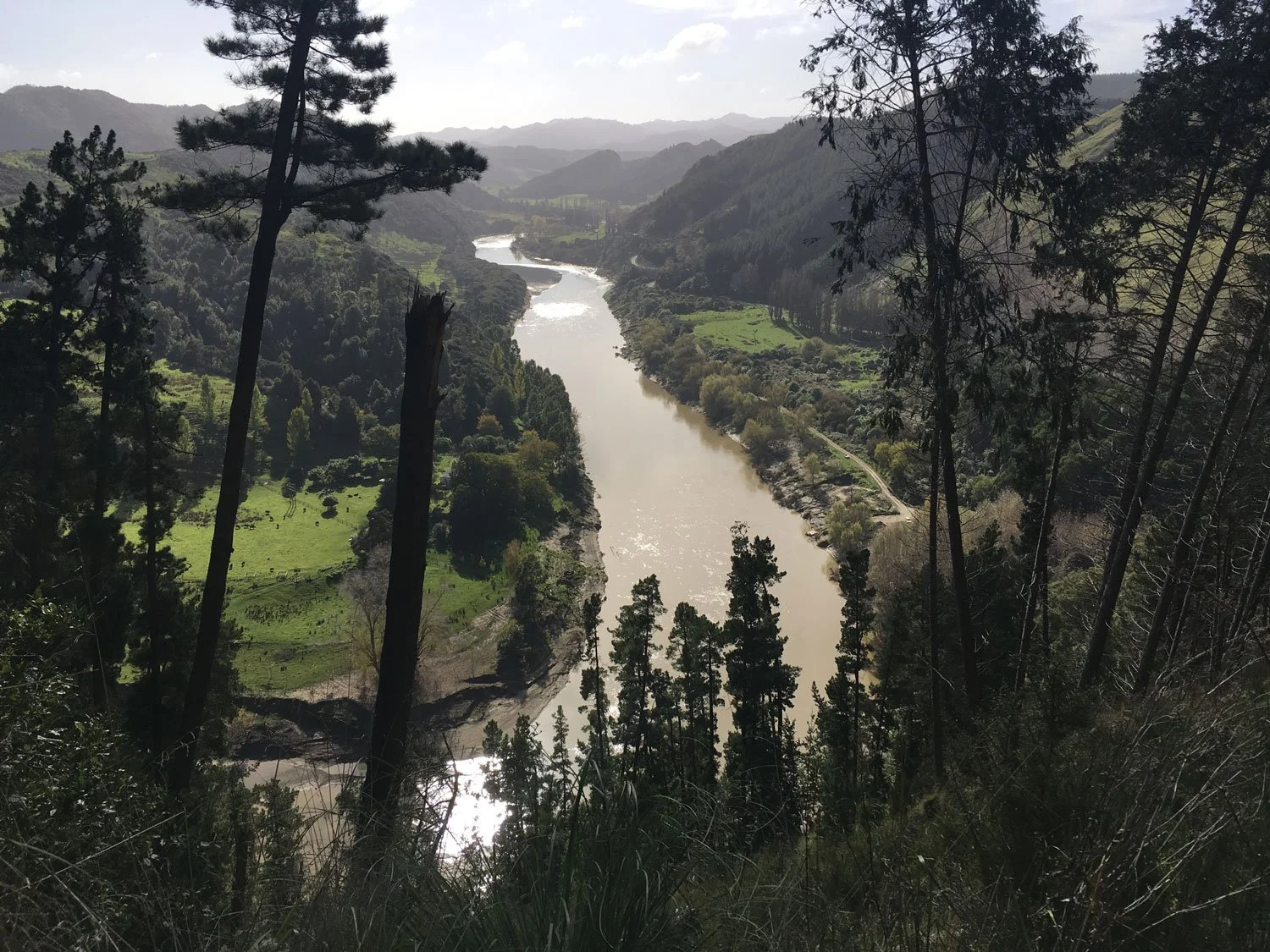The Whanganui River
In 2017 the New Zealand government enacted the Te Awa Tupua Act, which assigns to the Whanganui river ‘rights, powers, duties, and liabilities of a legal person’ and declares two guardians responsible for maintaining the river’s ‘health and well-being’ (New Zealand Ministry of Justice 2017, 15 and 88). The basis of the law follows Māori ideas and beliefs of Te Awa Tupua, where the river is respected by the Whanganui Iwi as a living ancestor with intrinsic value. The Act is structured to incorporate the understanding of the necessity to maintain the deep connection between the Whanganui Iwi and the Whanganui River.
In May 2018, I had a residency in the New Zealand Pacific Studios and as part of the residency I spent time exploring the Whanganui River. I was struck to see how degraded the lower part of the Whanganui River catchment really was. A one in 85 year flood in two months previously had destroyed the road and I was able to see the process of road repairs. There were so many landslides. It looked like the steep hillsides bordering the river were falling apart, filling the Whanganui with brown sediments. Years of deforestation of native trees from the steep slopes, diary farming and replanting with fast growing conifers like macrocarpa for wood plantations were causing the young, vulnerable soils in the Whanganui to erode into the Whanganui River.
The film is a journey of some of the headwaters of the Whanganui River to the outlet of Whanganui town.
Collages of Landsat Satellite imagery in red/green/blue composite of the headwaters, mid waters and lower Whanganui River.
A sketch of Awa Tupua
The hope of the Te Awa Tupua Act is to begin change for the Whanganui as a whole system. Certainly, it felt like the river needed a change from the massive erosion of its associated slopes. However, it is more than simply changing how the Whanganui River basin is managed; it is an ontological change that the Te Awa Tupua recognises. It is not about requiring objective evidence for creating policy to manage the river, which then develops legislation and laws that controls what happens to rivers. It is about human relationship with the river, which is subjective and requires an entirely different ontological process, that is presently not part of water management policy in Western countries.
These thoughts developed during my journey in the Whanganui, became the early spring waters for developing my PhD.









